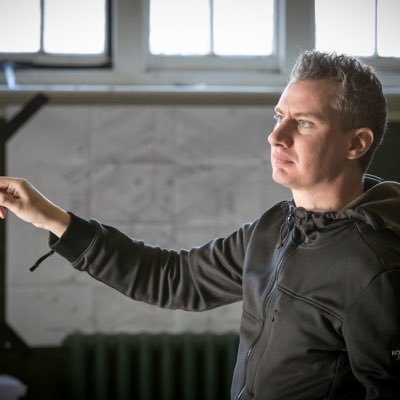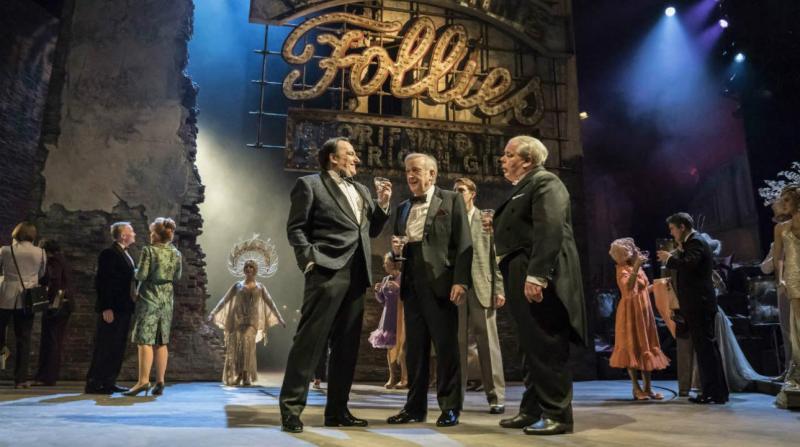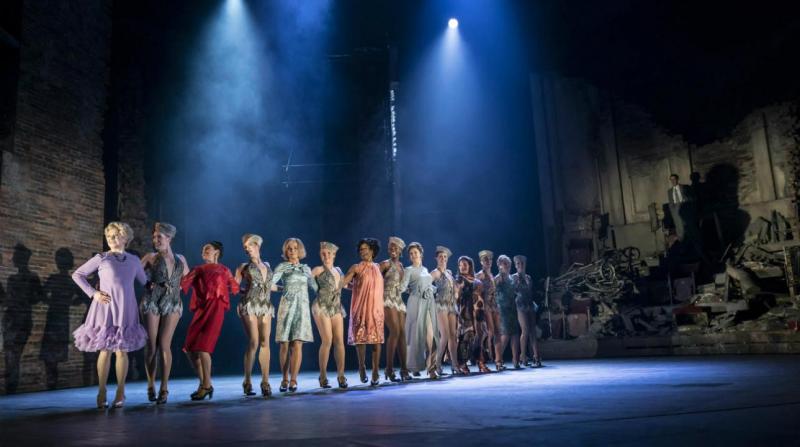Interview: Nigel Lilley Talks FOLLIES
|

Dominic Cooke's vision of Follies has returned to the National Theatre this Spring, following an acclaimed run in 2017 and a cast recording.
Nigel Lilley serves as Music Director, part of a team who have worked alongside Stephen Sondheim and Jonathan Tunick on this production. Taking us back to his early experiences of Sondheim, Nigel also shares what it means to work with him and Jonathan today.
What are your earliest experiences of Sondheim?
It was an old VHS of the Angela Lansbury production of Sweeney Todd. (I watched it every Saturday for years from the age of about nine or ten.) Then in my early teens, I saw the version here at the National with Alun Armstrong which was extraordinary.
I also saw an am dram West Side Story (which my Mum was in), Into the Woods at the Donmar, and I must have had all the cast albums. So I was an early fanatic.
How did you get started down the path of musical direction and supervision?
I always did am dram shows as a kid and I went on to read music at Kings. While I was there, I ended up depping at My Fair Lady on Drury Lane which was conveniently just over the road.
I ended up meeting a lot of great people early on: I worked with Mary Hammond at the Royal Academy when she ran the MT course, and I met the brilliant Gareth Valentine when he was doing Merrily We Roll Along at the Donmar.
Gareth was incredibly generous to me when I was starting out, mentoring me and then he gave me my first few jobs. He's obviously a Sondheim master. I remember one of the first times we met, he asked me to sight-read the Merrily overture. So it was a real trial by fire and I learned so much.
Since then, you've worked as MS and MD across a range of shows. Do you find yourself drawn to classical work like Follies or new writing in particular?
I always try to mix it up and do both - in the same way that I try and vary my work between conducting from the piano and more traditional 'stick conducting' - I think it's important to keep sharp in all areas. Because they all do feed each other.
But the new musical stuff I absolutely love and am always looking to do more of. The new musical writing scene here is less established than it is in America where they have many development labs and theatre that specialize in new work. But we have great writers coming through - and places like the NT studio provide fantastic resources.
And of course, the good thing about working on classics and something like Follies is that you learn from them, things like structure and storytelling. Then you can feed that experience back into when you're developing new works. So I think it's important to do both.

Do you have any particular highlights from working on new writing?
I was fortunate enough to collaborate a lot with Victoria Wood over many, many years. The proudest moment was That Day We Sang, which we originally did for Manchester International Festival and then was picked up for the BBC.
Just the journey of sitting in Vic's study, her playing me a song for the first time to recording with the Halle orchestra. When I listen back to the demo tapes, you can't hear the piano because it's basically just me laughing!
More recently, Romantics Anonymous was great. Working with Michael Kooman and Christopher Diamond alongside Emma Rice, it was such an open room. It's a very joyous and free way to work. That's when we all give our best work, when anyone can put their hand up and pose that "What if...?"
And another recent collaboration has been with Jeanine Tesori.
Yes! It's been wonderful to work with Jeanine on both Fun Home and Caroline, or Change. She has such an extraordinary, unique voice. Even both of those shows are so varied in their tone.
Caroline is bursting with ideas and the score is dense and complex in the best possible way. Fun Home has an astounding economy to it. The rigour with which Jeanine examines every one of her musical choices is inspirational.
Speaking of Follies, how did your original involvement come about?
It was through Nicholas Skilbeck who's the music supervisor. We'd worked together on Charlie and the Chocolate Factory, another big, new musical and had a great time working together.
So Nick asked if I'd be interested and it was an incredibly quick decision! I already knew some others involved: Imelda [Staunton] actually from that BBC adaptation of The Day We Sang, Philip Quast from Divas at the Donmar and La Cage aux Folles.
But I'd never worked with Dominic Cooke before. I'd seen a lot of his work and had always wanted to work with him. That was a complete revelation. You can't believe that he'd never done a musical because I've never met anyone with a stronger grasp of how it all works.
Can you take us through your role as MD throughout Follies?
So I was involved in the initial casting. Then in the rehearsals, Nick and I would teach the singers the music, also working with Bill [Deamer] on the choreography sessions.
We didn't put too many changes into the music. A few new bits of underscore here and there, which we relayed to Jonathan Tunick, the original orchestrator. Then nearer the production time, I worked with the orchestra and we were lucky enough to have Jonathan there with us the first time round.

That must have been so special!
I mean to have Stephen Sondheim around obviously blew everyone's minds. But actually on another level, for the musicians Jonathan's involvement was even more special. The way he'd be able to describe to the musicians what he was thinking when he orchestrated a certain passage. A certain clarinet lick may have been based on a player that he knew in the old days.
It felt like you had a real living link to the past. We'd sit in the Green Room after and he and Steve would tell stories about all the many shows they'd created together. My ten year old self couldn't quite believe it: sat there with Steve telling stories about Oscar Hammerstein and Lenny Bernstein.
And to return to the National, how have you found audiences have been reacting?
I've got a lot of friends who are scarily real Sondheim aficionados. And in particular, a fair few Follies aficionados who were even at the Boston try-outs. They have made multiple return visits here both times. I think older people particularly enjoy it, it's a show that does hit older generations.
I also don't think these days we're quite as used to seeing anything on this scale: the 21 piece band, Vicki Mortimer's design, Paule's beautiful lighting, the sheer number of bodies on stage. Bill and Dom took such care over the staging. Even when I watch now, I'm pretty overwhelmed by it.
Genuinely, it's been the most glorious experience both times. And getting to do the album was the icing on the cake.
Which serves as a great way to capture this production and this vision.
It's great to have a record for this. And that came right at the end of our first run.
We had just finished performances and it was so quick! It was just like one of the old Broadway albums, so we did nine in the morning until midnight. Four three hour sessions with the band and then some vocal pickups the next day.
And I remember the last song we recorded was Tracie [Bennett] doing "I'm Still Here"! To think, Tracie at 11.00 at night...and she was still there, belting it out!
It's such a luxury these days to be blessed with a 21 piece orchestra. Thank God for the National for doing that, because it means we could actually have a real harp and a proper strings section, it gives real weight to it on the album and every night.
Follies at the National Theatre until 11 May
Photo credit: Johan Persson
Videos
